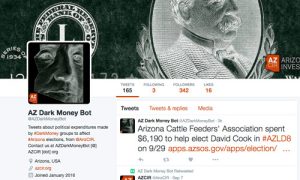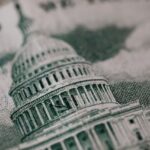The end is near! A keen focus this election season is the candidates’ economic proposals. Many of the nation’s leading economists are split on which plan is better. Here are five top economists to follow when reporting on Clinton vs. Trump economics.
Mark Zandi
Mark Zandi is the chief economist of Moody’s Analytics. He has been an advisor to Congress, testifying on topics including the economic outlook and the nation’s fiscal policy. In July, Zandi led a Moody’s report that concluded that Clinton’s plan would create 10.4 million jobs. It also estimated that the pace of GDP growth would accelerate to an annual average of 2.7 percent, up from the current forecast of 2.3 percent. Among the Clinton proposals Moody’s has analyzed are her plans to manage immigration and government spending on infrastructure. Read the Moody’s Analytics reports on Clinton and Trump.
Peter Navarro
Peter Navarro, a professor of economics and public policy at the Paul Merage School of Business at the University of California, Irvine, advises the Trump campaign. One area he focuses on is trade: He believes that Trump’s proposals to stop Mexico and China from “cheating” are key to rebalancing America’s trade agreements. He is also a strong proponent of Trump’s plan to cut income taxes across the board. Here is his assessment of Trump’s economic plan.
Paul Krugman
Economist Paul Krugman, Distinguished Professor of Economics at the Graduate Center of the City University of New York, is a highly acclaimed columnist for The New York Times. The Nobel Prize winner has been a strong supporter of Clinton and her economic plans. In April, he asserted that she is, “arguably the best prepared candidate on matters economic to ever run for president.” Krugman believes that Clinton’s plans for incremental but large increases in tax rates for the wealthy, further tightening of financial regulation and strengthening of the social safety net will add to U.S. economic growth. Here are his Twitter feed and his blog for The New York Times.
Stephen Moore
Chief economist at leading conservative think tank The Heritage Foundation, Stephen Moore is a regular contributor to the Wall Street Journal and the Washington Times. He also serves as a senior economic advisor to the Trump campaign. Moore asserts that lowering the corporate tax rate from 35 percent to 15 percent is vital to the success of Trump’s economic plan and would bring millions of jobs and businesses back to the U.S. He has also praised Trump’s promises to slash taxes for the middle class, saying the average American family would save about $1,000 to 2,000 a year. You can follow his Twitter feed here.
Jeffrey Miron
Jeffrey Miron currently teaches as a Senior Lecturer and Director of Undergraduate Studies in Harvard University’s Economics Department. He is also Director of Economic Policy Studies at the Libertarian think tank, the Cato Institute. Miron has been critical of many of Trump’s economic proposals, going so far as to call them “disastrous.” Miron argues that Trump has misfired on issues ranging from tax reduction and reform to regulatory reform and trade policy. In particular, Miron suggests that Trump’s tax cuts aimed at the middle class are mildly beneficial in the short run and detrimental in the long run. His Twitter feed can be found here.











